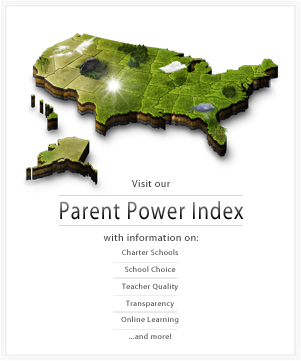Chicago teachers’ strike hurts our kids
by Terry Moe, special to CNN
CNN
September 11, 2012
Editor’s note: Terry M. Moe is the William Bennett Munro professor of political science at Stanford University, a senior fellow at the Hoover Institution, and a member of the Koret Task Force for K-12 Education. He is the author of “Special Interest: Teachers Unions and America’s Public Schools” (Brookings, 2011).
It is easy to see the Chicago teachers strike as an unfortunate incident that will soon pass. This is, after all, their first strike in 25 years. The norm is that the district and the Chicago Teachers Union have regularly negotiated their way to contracts every several years. So it might appear that, almost always, collective bargaining “works.”
But does it? The purpose of the Chicago school system — and of the American school system more generally — is to educate children. The way to assess collective bargaining is not to ask whether it works to bring labor peace. It is to ask whether it promotes the interests of children in a quality education. And the answer to that question is no, it does not. Not even remotely.
Collective bargaining is not fundamentally about children. It is about the power and special interests of adults. In Chicago and elsewhere, the teachers unions are in the business of winning better salaries and benefits, protecting job security, pressuring for restrictive work rules and in other ways advancing the occupational interests of their members. These interests are simply not the same as the interests of children.
And they inevitably lead, through the exercise of union power, to contracts whose countless formal rules are literally not designed to create an effective organization for schools. In fact, they guarantee that the schools will be organized in perverse ways that no one in their right mind would favor if they just cared about what is best for kids.
Because of the formal rules that unions fight for in labor contracts, district leaders can almost never get bad teachers out of the classroom. Nor can they allocate good teachers to the schools and classrooms where they can do the greatest good for kids. Add to this that the evaluation process is a full-blown charade, and 99% of all teachers, including the very worst teachers, are regularly given satisfactory evaluations. Also, teachers are paid based on their seniority and formal credits, without any regard for whether their students are learning anything.
And so it goes. This is a school system organized for the benefit of the people who work in it, not for the kids they are expected to teach.
Collective bargaining is not the only arena in which jobs take priority over kids. It also happens in the politics of state and national governments, which should be governing the public schools in the best interests of kids, but aren’t.
A major reason is that the teachers unions are by far the most powerful political force in American education. The National Education Association and the American Federation of Teachers have some 4.5 million members between them, they are among the top spenders in state and national elections, they have activists in virtually every electoral district in the country, they have formidable lobbying machines and much more. They are among the most powerful special interests of any type in the country.
What have they done with all this political power? For more than a quarter century, this country has been frantically trying to reform and bring real improvement, effective organization, to the public school system. And the unions have used their political power to block or seriously weaken these efforts: by preventing the spread of charter schools, undermining true accountability for schools and teachers, resisting performance pay, protecting teacher tenure and in countless ways defending a poorly performing status quo. Very successfully.
Every one of us pays the price. Our children are being denied a quality education, fulfilling careers and productive lives. The nation is losing precious human capital, its long-term economic growth is taking a direct and destructive hit and its position of leadership in the world is seriously threatened.
So, yes, Chicago’s teachers are out on strike. That is today’s news, today’s headline. But the real problem is much larger. It is that power over this nation’s key educational decisions — in Chicago and virtually everywhere else — is disproportionately exercised by special interests.
Long after Chicago’s teachers are back to work, this problem will remain. The fundamental challenge facing our country is to find some way of solving it.











